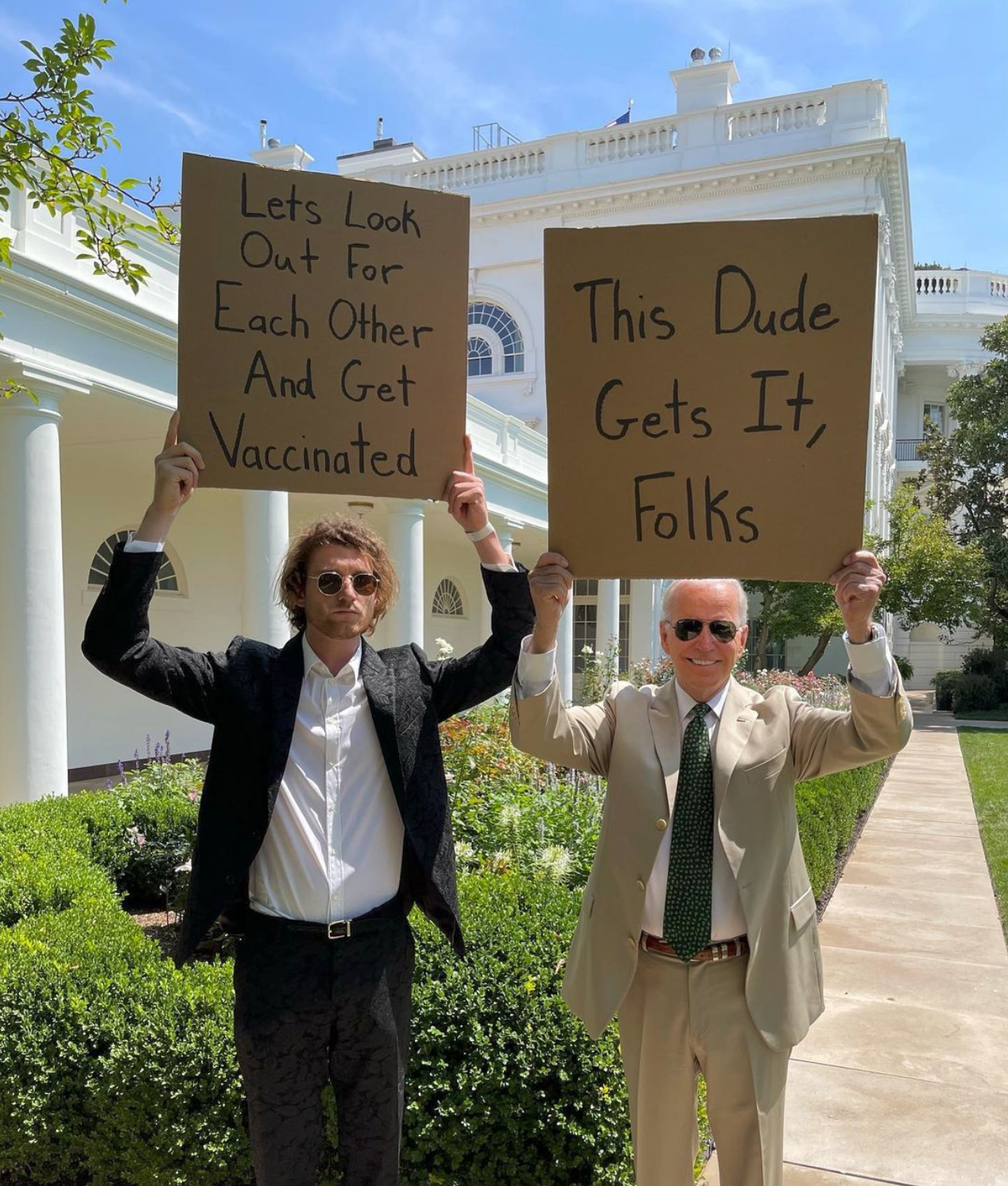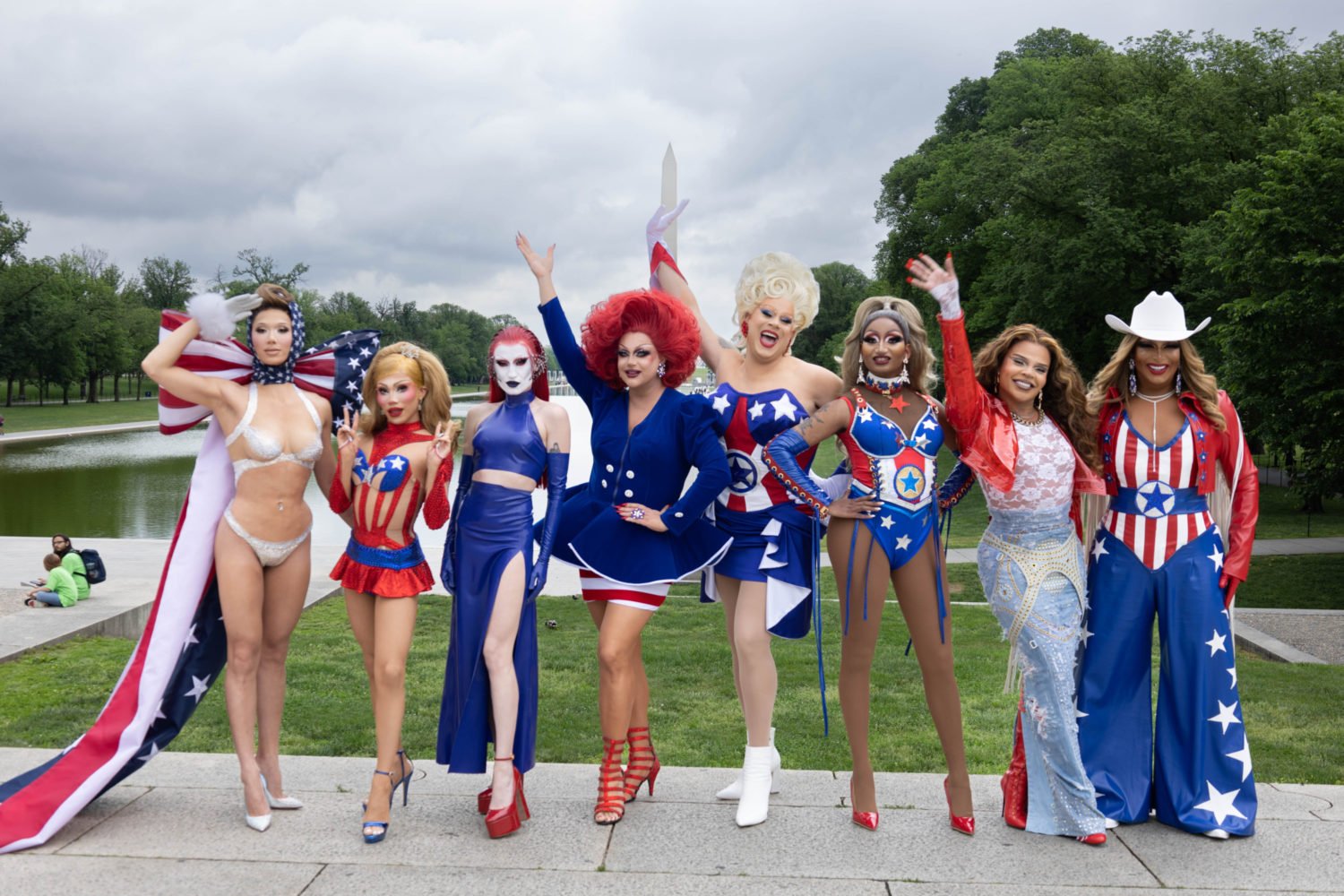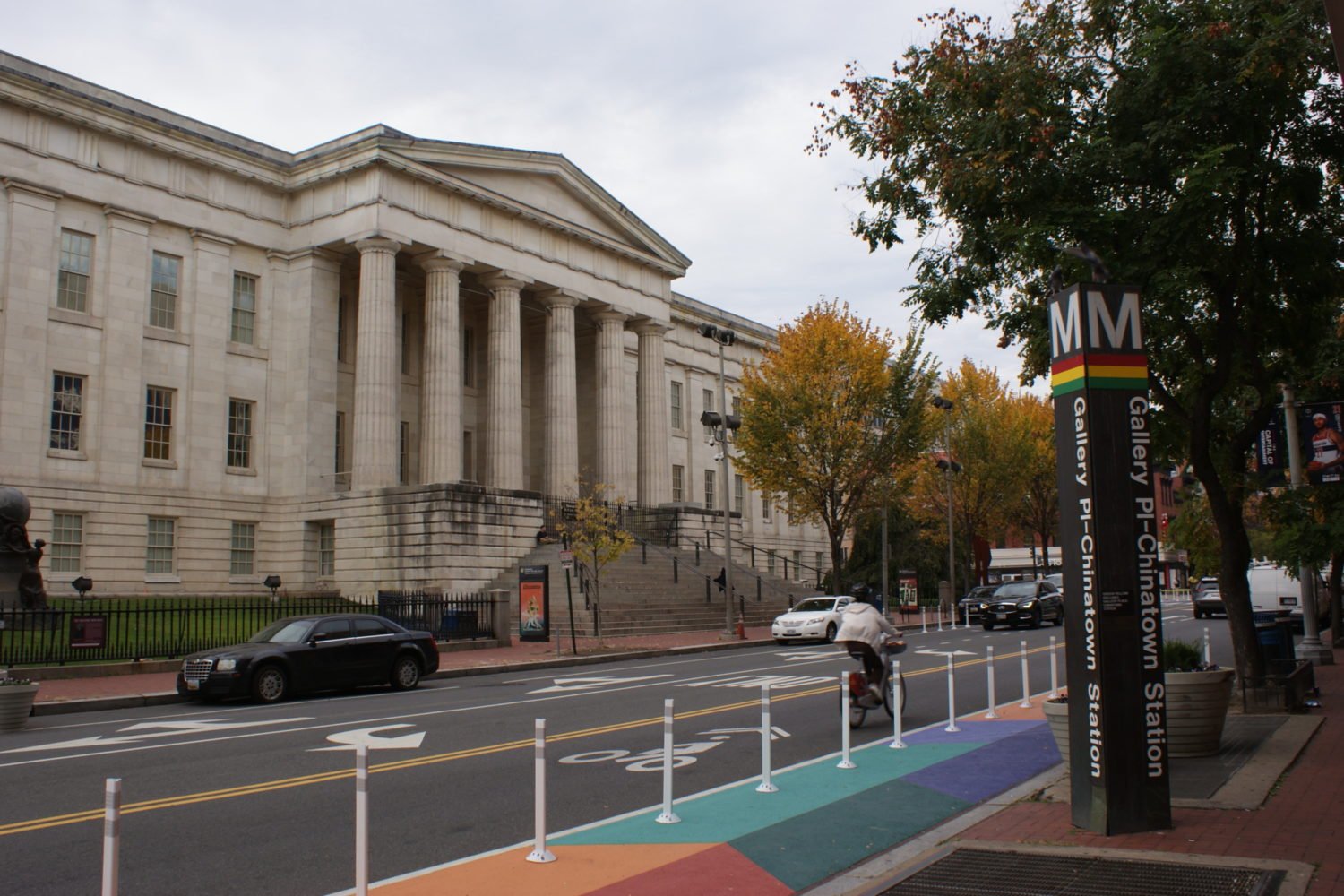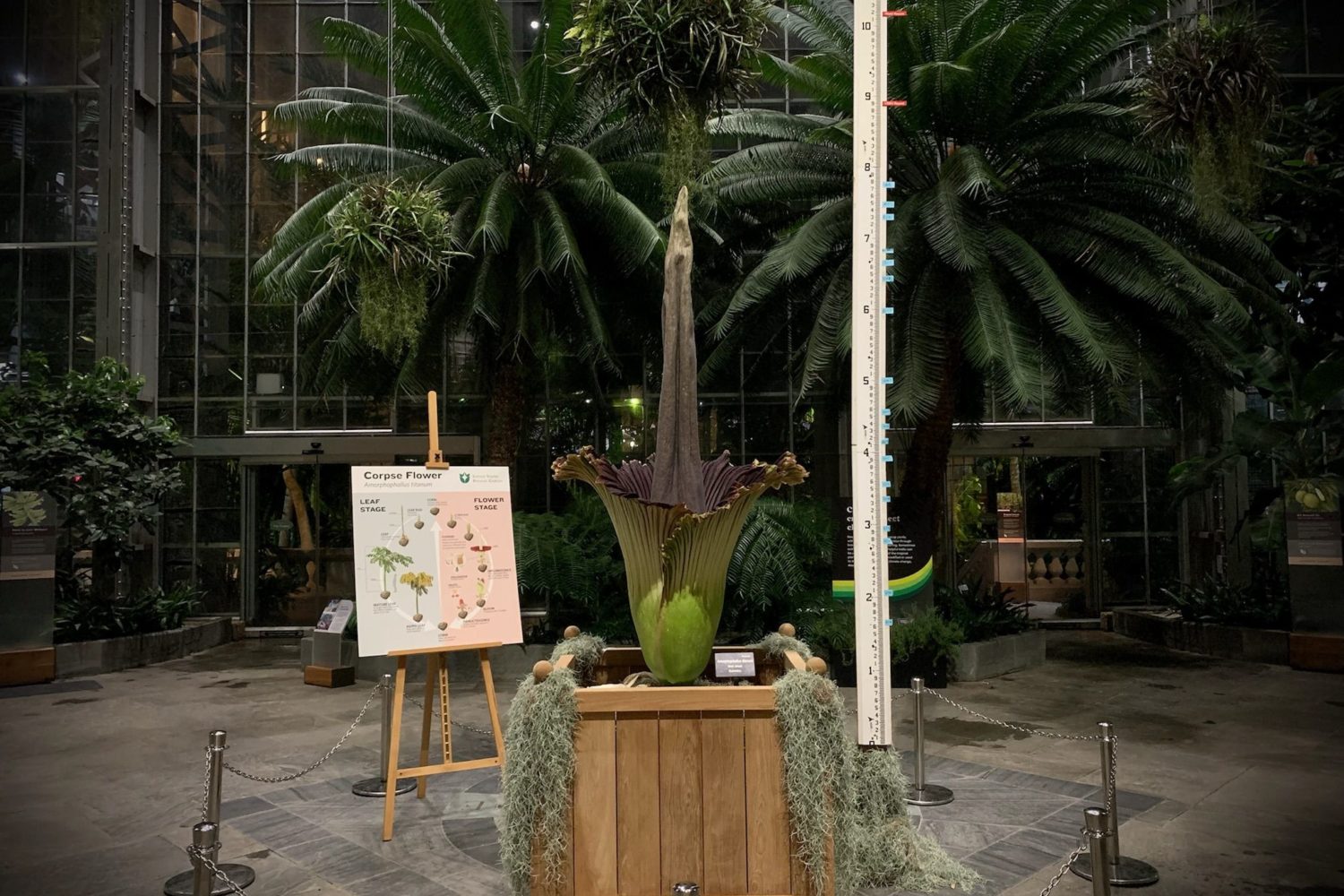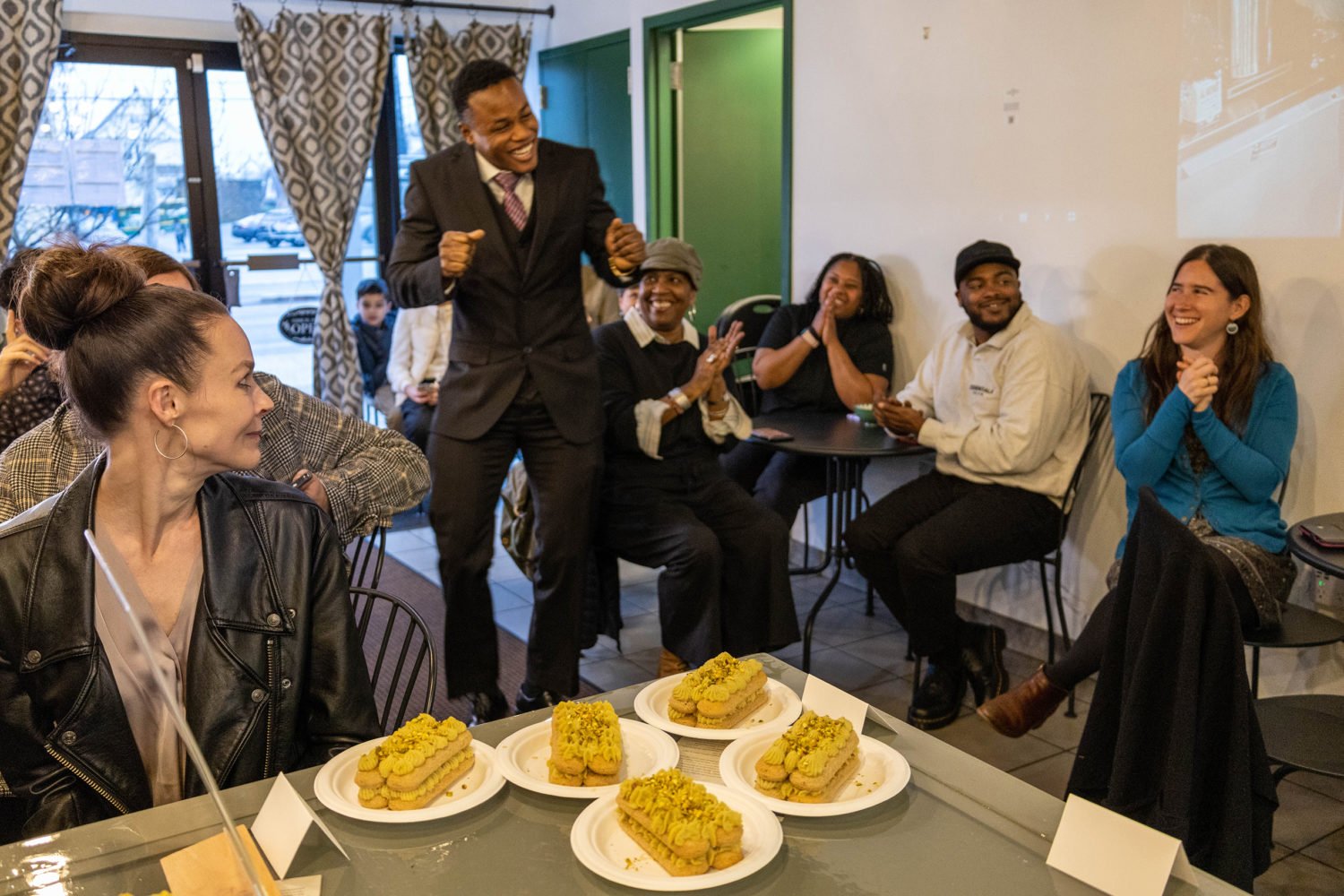For anyone selling a new soda flavor or redesigned sneakers, recruiting online influencers has long been a part of the playbook. So it comes as little surprise that the White House is pursuing a similar strategy with its effort to convince Americans to get the Covid vaccine. But the scale of the campaign—and its unabashed goofiness—signals just how central the internet’s silliest characteristics have become to our political culture, even when communications pros are grappling with the thorniest health crisis of our lifetime.
Christian Tom, President Biden’s deputy director of digital strategy, is heading up a team—the first of its kind at the White House—tasked with using influencers to spread the administration’s message, whether about vaccines or other topics of relevance to the kind of people who spend more time watching YouTube than Wolf Blitzer.
Which is how members of the President’s core staff recently found themselves crafting sentences to scrawl on pieces of cardboard that would be held up in a photo featuring Joe Biden in the Rose Garden next to a guy known as Dude With Sign. That effort involved members of the Office of Digital Strategy, the White House communications staff, Oval Office Operations, and the Covid Response Team. “We wouldn’t want to put something on the sign that [Biden] wouldn’t himself say or want to hold up,” says Tom.
Dude With Sign (real name: Seth Phillips) is one of almost 100 online influencers whom the White House has recruited to spread Covid-vaccine awareness. Pop star Olivia Rodrigo and TikTok comedian Benny Drama have also made White House stops, and others, such as Brave Wilderness’s Coyote Peterson and TikToker Taylor Cassidy, have created vaccine content.
The White House’s digital-partnerships team has been identifying creators based on such factors as their reach, the demographics of their followings, and their cultural currency. (Participants are not paid.) While the influencers are accustomed to getting pitches from people with something to promote, it can be a shock to hear from the White House. “It was insane,” says Jax James, a creator and activist from North Dakota with more than 2.7 million TikTok followers. “I knew my platform reached a lot of people, but never in a million years did I think the White House would know who I was.” She ended up making a TikTok video in which she interviews Anthony Fauci.
Presidents have long used celebrities to hawk their agendas, of course, but the coordinated nature of this large-scale effort and the seriousness of the task represent a change in the dynamic between Washington-famous and media-famous. Or perhaps an acknowledgment that celebrity is a very different concept in the diffuse universe of internet fame. At any rate, it requires practitioners in DC’s vast communications industry—within and outside the White House—to take an approach that’s more sophisticated than when, say, Ronald Reagan enlisted Arnold Schwarzenegger to push physical fitness. It’s also more fun.
The effort has scored tens of millions of views; the pic of Biden and Dude With Sign earned 2.2 million Instagram likes. But the only metric that matters is new injections, and it’s harder to measure that impact. “We really do think this strategy is working,” Tom says. Meanwhile, Dude With Sign is back to his typical inanity, sharing messages like “double dipping isn’t that gross.” That one has managed only 439,000 likes.
This article appears in the October 2021 issue of Washingtonian.

